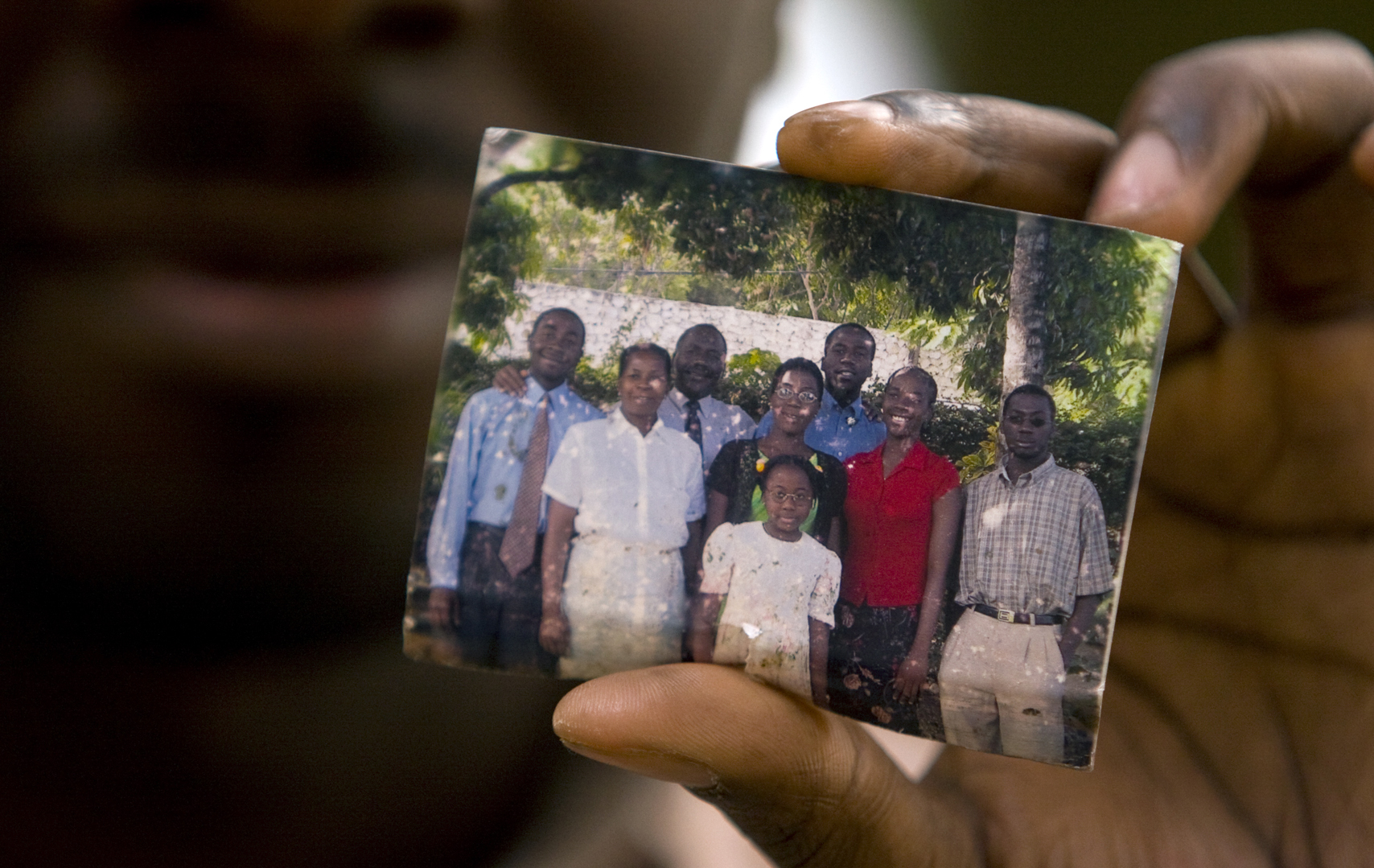
NASHVILLE, Tenn. (BP)–The five-member Southern Baptist disaster relief assessment team is on the ground in Haiti, according to an e-mail from Jim Brown, U.S. director for Baptist Global Response and a member of the team.
The team expected to connect with Haitian Baptist leaders, survey earthquake damage and deliver relief supplies, Brown said. They are accompanied by Mark Rutledge, who has 26 years of experience serving as an International Mission Board worker in Haiti.
The team arrived in Port-au-Prince Wednesday (Jan. 20) after a 17-hour, 160-mile trip in a four-vehicle caravan from Santo Domingo, Dominican Republic.
Bruce Poss, disaster relief coordinator for the North American Mission Board, speaking via satellite phone from an orphanage on a hill above Port-au-Prince, reported, “Everywhere is very crowded. We passed the U.S. Embassy where it looked like 5,000 people were outside, lined up for processing. Security is a real issue.”
A strong aftershock measuring 6.1 in magnitude struck Port-au-Prince at 6:03 a.m. Wednesday, Jan. 20. According to news reports, the shock sent people scrambling for open ground as buildings damaged by last week’s quake shuddered and rubble began falling to the ground. Eyewitnesses said people already traumatized by the horrors of the past week cried and screamed at the new tremor. More than 40 significant aftershocks have hit since the Jan. 12 quake killed an estimated 200,000 people, injured 250,000 and left 1.5 million homeless.
Brown said the assessment team did not feel the aftershock before departing from the Dominican Republic this morning. However, Steve Leach, a member of Round Grove Baptist Church in Miller, Mo., who operates an independent hospital in northwest Haiti, reported the aftershock “brought down some of the damaged buildings that were still standing and will keep anyone from going back to what buildings are still standing for many days to come.”
“With so many severe aftershocks over the last week and now another new quake, who knows when people who have a place to go will feel safe to return there,” Leach wrote in an e-mail report.
Leach said about 1,200 refugees have come to the hospital for treatment and he has been sending trucks into the capital to look for survivors with family who live near the hospital.
“We live in a place that is about as far from the capital as you can get and still be in Haiti and yet we have watched these very poor people trying desperately to figure out a way to get their family members out here so they can take care of them,” Leach said. “The truck drivers are less and less willing to [drive into the city] as the situation in Port deteriorates.”
Relief efforts are struggling to get essential relief supplies to hundreds of thousands of desperate people, but destroyed infrastructure and disorganization are hampering the effort. Officials are concerned that the desperation people feel will boil over into violence. Looters by the hundreds have been fighting each other with broken bottles, clubs and other weapons over whatever goods they can still find in damaged stores.
“Pray specifically for God to give those in control wisdom to direct the relief effort,” Leach said.
The assessment team — encompassing representatives from Baptist Global Response, North American Mission Board and disaster relief specialists from Kentucky, Mississippi and South Carolina — hopes to link up with leaders of the five Baptist conventions in Haiti.
A separate Florida Baptist assessment team already is on the ground in Haiti, and a team of Southern Baptist missionaries is helping at a medical clinic in Jimani, Dominican Republic, on the border with Haiti. A seven-member medical team from North Carolina Baptist Men also is in Haiti and another 10-member team from the state left Jan. 19; additionally, a medical team from the Arkansas Baptist Convention also is at work in Port-au-Prince.
The first priority of the assessment effort is to coordinate with local Baptist partners and other organizations and establish supply lines for water, food and temporary housing supplies, Brown said. Baptist Global Response then will report back to disaster relief directors of the Baptist state conventions about an overall coordinated strategy for both short-term response and mid-to-long-term rehabilitation and recovery.
With a plan in place, volunteers may be able to enter Haiti as early as Jan. 25 to begin clean-up, distribution of supplies, temporary and permanent reconstruction, medical care and counseling, said Jeff Palmer, executive director of Baptist Global Response. Later, educational and microenterprise teams will be needed to help the Haitian people resume their lives and work.
–30–
Compiled by Baptist Press assistant editor Mark Kelly. Baptist Global Response is located on the Internet at www.gobgr.org. Mickey Noah of the North American Mission Board contributed to this story.
Southern Baptists can contribute to “Haiti Earthquake Disaster Relief” through their local church or directly to their state convention, the North American Mission Board (www.namb.net) or the International Mission Board (www.imb.org):
— Initial funding for the relief effort will come from the International Mission Board’s disaster relief fund. Contributions can be made online, www.imb.org, or by mail, International Mission Board, P.O. Box 6767, Richmond, VA 23230.
— The North American Mission Board has set up a Haiti disaster relief fund that will direct money to state conventions and other Southern Baptists who are doing relief work in Haiti. Donations may be made online, www.NAMB.net, by phone, 1-866-407-6262 1-866-407-6262 , or by mail, North American Mission Board, P.O. Box 116543, Atlanta, GA 30368-6543. Make checks payable to “Haiti Disaster Relief Fund/NAMB.”
Regardless of the SBC channel, all funds received for this purpose will go to relief efforts; none will be used for administrative costs.
















